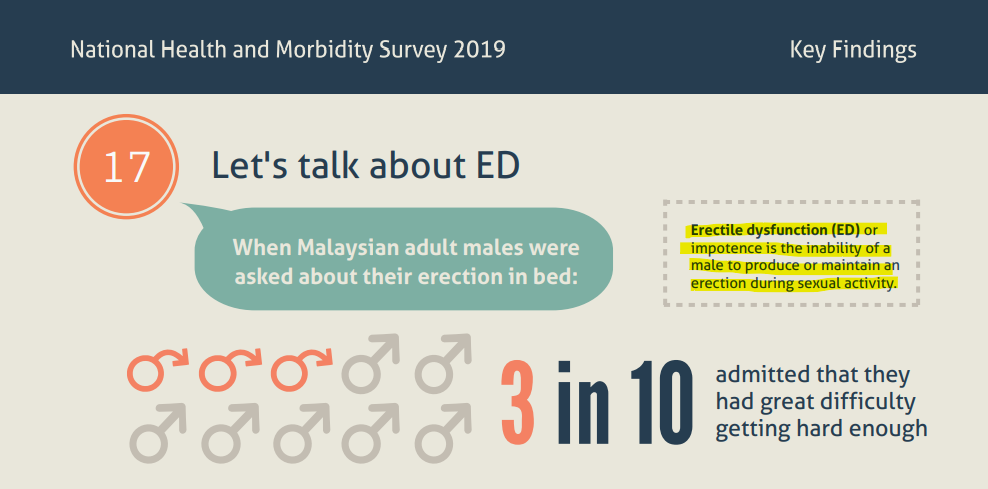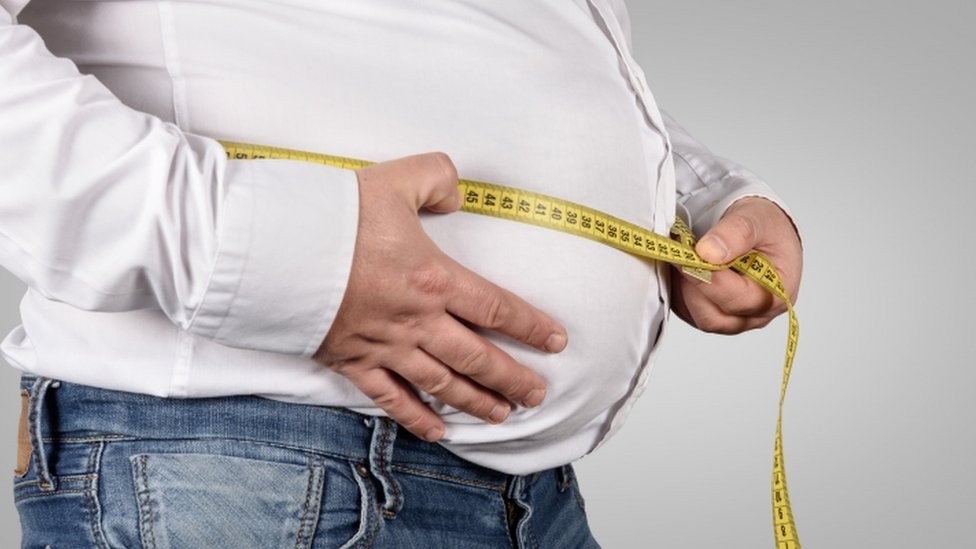Health Articles
Find out more about your health here from our health professionals!

Your Prostate Health Matters!
Many men do not care about or even know the importance of their reproductive organs, especially the prostate gland. The prostate gland has an important job, which is to produce a thick, milky-white fluid that becomes part of the semen, the liquid ejaculated during sexual activity. The prostate isn’t that big—about the size of a walnut or golf ball. The prostate is located just below the bladder and in front of the rectum. It also wraps around the upper part of the urethra, the tube that carries urine from the bladder out of the body. That means prostate problems can affect urination and sexual function.
What are the problems? If your "man" has problems like pain during urination or often urinates at night, you have to check and detect the problem early and take precautions. While you may not have any problems related to this, you have to know ways to prevent them from developing.
Benign Prostatic Hyperplasia
Is extremely common in older men. It is not cancerous, but it has the characteristic of enlarging the organ. The prostate goes through a period of rapid enlargement during puberty, but this levelled off once puberty was completed. The prostate will begin to grow again in midlife, but at a slower rate. These periods of growth are thought to be caused by increased levels of male hormones such as testosterone. The prostate grows throughout a man's life because testosterone is produced throughout his life.
The most common symptom of BPH is difficulty urinating or dribbling after you urinate. Also, you may feel the need to urinate a lot, often at night (5).
Prostatitis
It starts with a bacterial infection or prostate inflammation. Prostatitis can result in burning or painful urination, an urgent need to urinate, difficulty urinating, difficult or painful ejaculation, and pain between the scrotum and the rectum or in the lower back. Prostatitis is classified into two types: acute bacterial prostatic and chronic bacterial prostatic. It only causes mild urination difficulties and can cause fever, chills, or pain. A bacterial infection is also the starting point. The second is chronic bacterial prostatic disease, which occurs when an infection recurs frequently. This is a rare and difficult to treat condition. To feel better, you may need to consult your doctor (5).
Prostate Cancer
It is the most common type of male cancer. Prostate cancer typically grows slowly and is initially confined to the prostate gland, where it may not cause significant harm. The development of cancerous cells within the prostate gland, which may spread to other parts of the body. While some types of prostate cancer grow slowly and may require little or no treatment, others are aggressive and spread quickly. It primarily affects older men (1, 5).
Here are a few simple tips on how you can manage or care for your prostate gland. There is also a way to prevent it.
Healthy Eating – Better Health!
First and foremost, you must strive for a healthy eating pattern, which is easier than you might think. Adhering to a heart-healthy, low-animal-fat, low-carbohydrate diet. You must substitute whole-grain bread for white bread, as well as whole-grain pasta and cereal. Choose healthy fats like olive oil, nuts (almonds, walnuts, and pecans), and avocados. Limit your intake of saturated fats from dairy and other animal products. Avoid partially hydrogenated fats (trans fats), which are found in many processed foods and fast foods. Fruits and vegetables high in antioxidants are always beneficial to your body in preventing cancer-causing oxidants. Consume more fish because it contains omega-3 fatty acids. Because obesity has been linked to prostate problems, you should limit your sugar intake as well. Avoid sugar-sweetened beverages such as sodas and many fruit juices (1, 2, 3, 4).
Exercise For Everyone!
You should stay active in addition to eating a healthy diet. Regular exercise will lower your risk of developing certain problems, such as heart disease, stroke, and certain types of cancer. Although relatively few studies have directly assessed the impact of exercise on prostate health, those that have concluded that exercise is beneficial in the majority of cases.
If you have any kind of symptom, such as pain when urinating, you urinate frequently, especially at night. Screening for prostate problems is recommended between the ages of 55 and 70. Your doctor may perform a rectal exam as a physical test and blood testing for prostate-specific antigen (PSA) (5).
References
- Jennifer H. Cohen, Alan R. Kristal, Janet L. Stanford. (2000). Fruit and Vegetable Intakes and Prostate Cancer Risk. Vol 92. Issue 1 (61-68) https://academic.oup.com/jnci/article/92/1/61/2905797
- Katie M. Di Sebastiono, Marina Mourtzakis. (2014). The Role of Dietary Fat throughout the Prostate Cancer Trajectory. https://www.ncbi.nlm.nih.gov/pmc/articles/PMC4277017/
- Paul Turek. (2014). How To Keep Your Prostate Happy https://www.urologyhealth.org/careblog/how-to-keep-your-prostate-happy
- Harvard Health (n.d). 10 Diet & Exercise Tips for Prostate Health. https://www.health.harvard.edu/mens-health/10-diet-and-exercise-tips-for-prostate-health
- MedicineNet (n.d). Prostate Problems. https://www.medicinenet.com/prostate_problem_warning_signs/article.htm

Erectile Dysfunction: Is it taboo or a health concern?

Globally, it is estimated that 100 million men have ED problems, but even with such a figure, ED is considered a taboo topic to discuss because it is considered an embarrassment, and people do not want to seek medical help for it. It is not taboo to discuss ED because it is a health issue. Sexual well-being is one component of overall health, and as we age, our bodies do not function as well as they used to, which is why ED is common in men aged 40 and older.
ED can be caused by a variety of factors, including physical, psychological, and social factors. Physical factors such as heart disease, atherosclerosis, high blood pressure, diabetes, high cholesterol, obesity, Parkinson's disease, multiple sclerosis, liver or kidney problems, Peyronie's disease, and alcoholism are common among older men. These medical conditions typically affect the nerves and blood vessels that control erections, which explains why people with such conditions are more likely to develop ED. Psychological factors can also contribute to ED. Worry about being unable to achieve or maintain an erection, as well as prolonged emotional distress related to economic, professional, social issues, relationship conflicts, and depression can all distract a man of any age from becoming aroused.
Stendra (avanafil), Viagra (sildenafil), Cialis (tadalafil), and Levitra or Staxyn (vardenafil) are some of the most commonly prescribed erectile dysfunction treatments. Aside from medication, lifestyle changes such as exercise, healthy eating, stress management, and adequate sleep will also aid in the treatment of this condition.
According to the study, not all types of exercise help with ED; exercise such as cycling might not be helpful for ED, according to the National Health Service, UK; however, weight-bearing exercise can increase the natural production of testosterone, which is a significant factor in erectile strength and sex drive. Apart from weight-bearing exercise, kegel exercises, which improve your pelvic floor, yoga, and aerobic exercise, which are targeted to improve stamina and overall fitness, also help. In general, exercise will improve sexual health as it improves blood circulation, hormone regulation, stamina, and endurance, thus improving sex drive and erection problems.

Apart from exercise, nutrition also plays an important role in ED. A study found that men with a 42-inch waist are 50% more likely developing ED than men with a 32-inch waist. Also, being obese increases men's risk of getting vascular diseases and diabetes, which contributes to ED. Reduce or stop smoking, and consuming alcohol has also shown tremendous positive effects on ED problems. Smoking for a long time affects the vascular health; it causes the blood supply to the penis to become restricted due to blockage or narrowing of the arteries, thus causing the erection problem. While, as for the consumption of alcohol, it suppresses the central nervous system that is responsible for releasing nitric oxide (a chemical that is responsible for producing and maintaining an erection), which is why the more men drink alcohol, the more likely they are to have an ED problem.
In conclusion, talk to your doctor regarding your condition. You might think that your condition is too petty to discuss, but by letting your doctor know about it, it gives a different perspective to your whole treatment plan.
References
- Everyday Health (n.d). Naturqal Treatment for Erectile Dysfunction. https://www.everydayhealth.com/pictures/lifestyle-changes-natural-treatments-erectile-dysfunction/ (Accessed on March 2, 2021).
- Healthline (n.d). Erection Problems. https://www.healthline.com/health/erection-problems (Accessed on March 2, 2021).
- Medical News Today (n.d). Erectile Dysfunction. https://www.medicalnewstoday.com/articles/5702 (Accessed on March 2, 2021).
- National Health Service, United Kingdom. Erectile Dysfunction. https://www.nhs.uk/conditions/erection-problems-erectile-dysfunction/ (Accessed on March 2, 2021).
- National Institute of Health (NIH), National Institute of Diabetes, Digestive, and Kidney Disease (NIDDK). Symptoms & Causes of Erectile Dysfunction. https://www.niddk.nih.gov/health-information/urologic-diseases/erectile-dysfunction/symptoms-causes (Accessed on March 2, 2021).
- Mayo Clinic. Erectile Dysfunction. https://www.mayoclinic.org/diseases-conditions/erectile-dysfunction/symptoms-causes/syc-20355776 (Accessed on March 2, 2021).
- Everything you need to know about ED. https://www.healthline.com/health/erectile-dysfunction#symptoms (Accessed on March 2, 2021).

Menopause in men
While some claim that men go through menopause, others assert that this is not the case for men. Which is accurate? Men can experience this type of menopausal period under certain circumstances, but it would be inaccurate to refer to it as menopause since the process is different from what women go through (6).
The pathway by which men's testosterone levels decline is when older men's testosterone levels fall as a result of declining Leydig cell mass in the testicles or a malfunction in hypothalamic-luteinizing hormone, which in turn results in low testosterone production (6).
In men who are 50 or older, andropause causes a decrease in testosterone production. The term andropause is frequently used by doctors to refer to male hormone changes brought on by ageing. While testosterone production does decrease as men get older, it also does so when they have diseases like diabetes, among others.
Hormone changes occur naturally as we get older. There are several ways in which male menopause differs from female menopause, and not all men go through it. Your reproductive system won't completely shut down as a result. However, because of your lower hormone levels, there might be sexual issues. The decline of testosterone in men happens more gradually than it does in women during menopause, when hormone production completely stops. In contrast to the ovaries, the testes never run out of the substance required to produce testosterone. A healthy male may continue to produce sperm well into his 80s or beyond. Men's testosterone levels vary greatly. The testosterone levels of older men are typically lower than those of younger men. Throughout adulthood, testosterone levels gradually decrease (1, 2).

What are the signs and symptoms of andropause?
Recognizable signs and symptoms of low testosterone levels may include:
-
Changes in sexual function.
Testosterone plays a key role in libido in men. However, someone with low testosterone will likely experience a more drastic drop in their desire to have sex. This might include reduced sexual desire, erectile dysfunction, and fewer spontaneous erections. Your testes might become smaller as well.
-
Changes in sleep patterns.
Sometimes low testosterone causes sleep disturbances, such as insomnia or increased sleepiness.
-
Physical changes.
Various physical changes are possible, including increased body fat, reduced muscle bulk and strength, and decreased bone density. Swollen or tender breasts (gynecomastia) and loss of body hair are possible. Rarely, you might experience hot flashes and have less energy. Low testosterone levels in the body can also contribute to smaller-than-average-sized testicles.
-
Emotional changes.
Low testosterone might contribute to a decrease in motivation or self-confidence. You might feel sad or depressed or have trouble concentrating or remembering things.

How do men stay healthy?
The most common type of treatment for symptoms of male menopause is making healthier lifestyle choices. For example, your doctor might advise you to:
-
Eat a healthy diet.
What you eat has a major impact on testosterone as well as other hormone levels. Therefore, you must pay attention to your long-term calorie intake and diet strategy. Constant dieting or overeating may disrupt your testosterone levels. Eating enough protein can help maintain healthy levels and aid in fat loss, which is also associated with testosterone.
-
Get regular exercise.
Exercise is one of the most effective ways to prevent many lifestyle-related diseases. Interestingly, it can also boost your testosterone.
-
Get enough sleep.
-
Reduce your stress.
What are the andropause treatments?
According to the World Health Organization (WHO), men who experience a drop in testosterone level should be offered treatment with testosterone replacement therapy in addition to leading a healthy lifestyle to prevent or reduce the risk of andropause happening.
It is therefore best to seek medical advice if you ever experience any of these symptoms. If a lifestyle or psychological factor is the root of the issue, the appropriate action will be taken to deal with it. It might be brought on by stress, depression, low self-esteem, obesity, being overweight, smoking, or consuming excessive amounts of alcohol.
References
- WebMD (n.d). Male Menopause https://www.webmd.com/men/guide/male-menopause
- Healthline (n.d). What Is Male Menopause? https://www.healthline.com/health/menopause/male#diagnosis-and-treatment
- Adam Fellman. (2018). Is The Male Menopause Real? https://www.medicalnewstoday.com/articles/266749
- Mayoclinic (n.d). Male Menopause: Myth or Reality? Https://www.mayoclinic.org/healthy-lifestyle/mens-health/in-depth/male-menopause/art-20048056
- NHS. (2019). The ‘male menopause’ https://www.nhs.uk/conditions/male-menopause/
- Duncan, C.G. & Richard, P. (2000). The Male Menopause: Does it exist? For some men need investigation and testosterone treatment. West J. Med. 173(2): 76–78. DOI: 10.1136/ewjm.173.2.76

Oysters and Men’s Health
In general, oysters are a type of shellfish. Not only is it important for ecosystems since one of its functions is to filter pollutants out of the water and provide habitats for other species, like barnacles and mussels, but it is also an excellent source of zinc, copper, iodine, iron, potassium, and selenium. Since oysters are rich in nutrients, they are also used in the supplement product for various reasons.

Oyster supplementation (1, 2, 3)
When it comes to oyster supplementation, people always thought that it came from its shell and not the meat, but the truth is, it comes from its creamy flesh meat!
The creamy flesh of oysters is cleaned and depurated. It is then processed and made into capsules, powder, and tablets. This is actually good news for those who cannot consume slimy, meaty food and thus can take it in tablet or capsule form.
Many people have started to consume oysters for their known ability to increase testosterone levels in men. It is also well known for its benefits in supporting men’s reproductive health as it contains a high level of zinc.
Since oysters are high in zinc, oyster extraction supplementation is highly recommended for those who are deficient in this nutrient. This is a very important nutrient that can help your immune system and improve your body’s metabolism as well.
Zinc is a trace mineral that is essential for various body functions, such as protein synthesis, collagen formation, wound healing, and healthy immune function. Apart from that, it is also needed to support prostate and reproductive health, especially for males. Individuals who have digestive disorders such as Celiac Disease and Chron’s Disease and/or are on a vegan diet are at higher risk of being zinc deficient and thus require zinc supplementation.
Zinc deficiency can lead to fatigue, impaired senses of taste and smell, poor appetite, slow wound healing, poor immunity, and hair loss as well.

What do the study's findings say? (4,5)
In 2003, a study in Japan used oysters, which contain a significant amount of zinc, to investigate whether they could improve the reproductive health of mice. This study was conducted on three groups of mice, where the first group was supplemented with a diet rich in zinc from oysters, the second group was supplemented with zinc from zinc carbonate, and the third group was fed a diet deficient in zinc.
This study found that mice supplemented with zinc either from oyster extraction or zinc carbonate had improved serum levels of zinc, improved sperm motility and maturation, increased successful pregnancy rates, increased maternal weight gain, increased the number of live fetuses, increased fetal body weight, and had better embryonic development as compared to mice fed a diet deficient in zinc. Thus, this study suggested that oyster extraction is a useful supplement that can prevent reproductive defects from zinc deficiency, and the bioavailability of zinc may be identical to zinc carbonate.
Another recent study that was conducted in 2018 with regards to men’s reproductive health and oysters is the review article that concluded that zinc is vital in men’s reproductive health since the adequacy of zinc content in seminal plasma is needed for men’s germination, normal sperm function, and fertilization. The review also noted that seminal fluid deficiency causes infertility, and many studies prove the association of the seminal plasma zinc concentration with the physiology and pathogenesis of sperm and its quality. The study also indicates that men who are smokers have a higher possibility of becoming infertile, as the toxin in cigarettes can lead to oxidative stress that can hinder the efficacy of seminal fluid and sperm parameters.
In conclusion
To date, there has been no meta-analysis or systematic study with regards to oysters specifically and men’s reproductive health. However, randomised controlled trials and review articles from a few studies, such as the two above, are able to portray that zinc deficiency may hinder sperm quality and fertility in men. Since oysters have a significant amount of zinc, they can be used to treat or prevent men’s reproductive health problems. Furthermore, the study also noted that the content of taurine and glycogen will also help alleviate this problem.
References
- Men’s Health Online Magazine. Take This Supplement to Improve you Sex Life. https://www.menshealth.com.au/oyster-and-zinc-supplement-improves-sex-health (Accessed on August 13, 2020).
- Men’s Health Online Magazine. Oyster Nutrition Facts. https://www.menshealth.com/nutrition/a19527227/oysters-nutrition-facts/ (Accessed on August 13, 2020).
- Are Oysters Good for you? Benefits and Danger. https://www.healthline.com/nutrition/oysters#1 (Accessed on August 13, 2020).
_thumbnail-260x200.jpg)
What is Benign Prostatic Hyperplasia (BPH)?

Benign Prostatic Hyperplasia (BPH) is a condition in which the prostate is enlarged but not cancerous. It is also known by a few other names, such as benign prostatic obstruction, benign prostatic hypertrophy, and enlargement of the prostate. According to the National Health Morbidity Survey Malaysia (NHMS), 16% of Malaysian men over the age of 40 suffer from this problem. The signs and symptoms of this problem usually worsen as men get older, which is why the NHMS reported that the percentage of men with symptomatic BPH increased from 10% among 40-year-old men to 33% among 75-year-old men.
Among the signs and symptoms of this problem are:
- Frequent or urgent urinating problem.
- Increased frequency of urination at night (nocturia).
- Difficulty starting urination
- A weak or interrupted urine stream.
- Dribbling at the end of urination
- Urine incontinence
- Pain after ejaculation or during urination
- Unusual urine colour or smell
- Inability to completely empty the bladder.
Most of these symptoms usually come from a blocked urethra or an overworked bladder from trying to pass the urine through the blockage in the bladder. For BPH, the size of the prostate does not necessarily indicate the severity of the problem; men can have a greatly enlarged prostate with little blockage and a few symptoms or a minimally enlarged prostate with greater blockage and more symptoms.
The cause of this condition is rather poorly understood, but there are probably two reasons for this, according to scientists. First, throughout their lives, men produce testosterone (male hormone) and a small amount of oestrogen (female hormone), but as men age, the amount of active testosterone decreases, leaving a higher proportion of oestrogen, which promotes prostate cell growth, hence the enlargement of the prostate. Second, it is due to the dihydrotestosterone (DHT) hormone, which plays roles in prostate development and growth. As men get older, they continue to produce and accumulate high levels of DHT in the prostate, which encourages prostate cells to continue growing. This is also theorised because men who do not produce DHT do not develop BPH.
 There are various treatments that can help with BPH, depending on the individual's severity and condition. Discuss your condition with your healthcare professionals so they may suggest a better treatment plan for you. The treatment plan usually involves lifestyle modifications such as:Urinating as soon as you feel the urge
There are various treatments that can help with BPH, depending on the individual's severity and condition. Discuss your condition with your healthcare professionals so they may suggest a better treatment plan for you. The treatment plan usually involves lifestyle modifications such as:Urinating as soon as you feel the urge
-
Go to the bathroom to urinate, even when you don’t feel the urge.
-
avoiding over-the-counter decongestants or antihistamine medications, which can make it harder for the bladder to empty.
-
Avoid alcohol and caffeine, especially in the hours after dinner.
-
Reduce your stress level, as nervousness can increase the frequency of urination.
-
Exercise regularly, as a lack of exercise can aggravate your symptoms.
-
Learn and practise Kegel exercises to strengthen your pelvic muscles.
-
Keep warm, since being cold can make symptoms worse.
As for the treatment from healthcare professionals, its usually includes prescription of medication (alpha blockers, alpha reductase inhibitors, etc.), minimally invasive procedures (transurethral needle ablation, high intensity focus ultrasound, prostatic stent insertion), and surgery (laser surgery, open prostatectomy, transurethral incision of the prostate (TUIP). Bottom line: talk to your doctor regarding your condition. No matter how insignificant you may think things that occur to you are, they might actually be a symptom of a disease.
References
-
Mayo Clinic. Benign Prostatic Hyperplasia (BPH). https://www.mayoclinic.org/diseases-conditions/benign-prostatic-hyperplasia/symptoms-causes/syc-20370087 (Accessed on Feb 25, 2021).
-
National Institute of Health (NIH). National Institute of Diabetes and Digestive and Kidney Diseases. Benign Prostatic Hyperplasia (BPH). https://www.niddk.nih.gov/health-information/urologic-diseases/prostate-problems/prostate-enlargement-benign-prostatic-hyperplasia (Accessed on Feb 25, 2021).
-
What do you want to know about enlarged prostate? https://www.healthline.com/health/enlarged-prostate (Accessed on Feb 25, 2021).
-
Ministry of Health Malaysia (MOH). National Health Morbidity Survey (NHMS) (2018) Infographic Booklet




